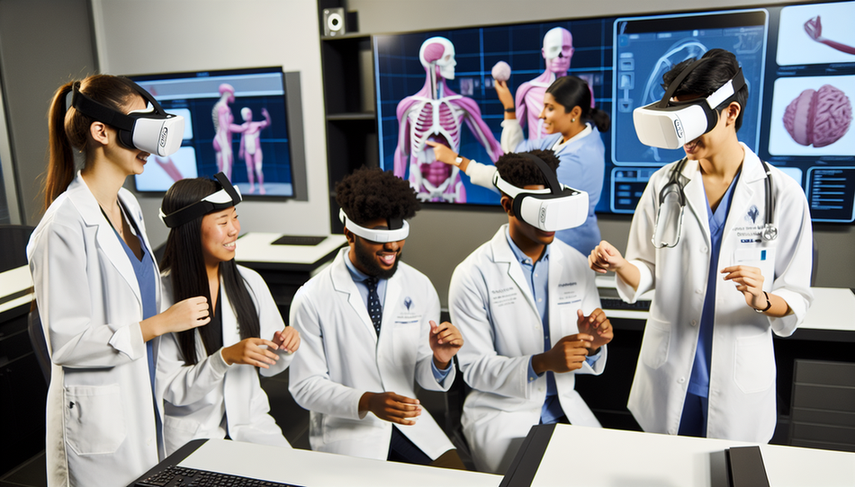Virtual Reality in Clinical Training: Enhancing Medical Education with Diagnostic Simulations
Virtual reality (VR) has emerged as a revolutionary tool in medical education, offering new opportunities for clinical training and diagnostic simulations. This technology allows students and healthcare professionals to practice and refine their skills in a safe and controlled environment, eliminating risks to patients. In this article, we will explore how VR is transforming medical education and its impact on the training of future physicians.

Diving Deeper into the Use of Virtual Reality in Medical Education
The integration of VR in medical education has proven particularly effective in areas such as endoscopy, laparoscopy, and echocardiography. For instance, a study on virtual reality simulation in endoscopy training highlights how this technology enhances patient safety and optimizes valuable endoscopy time by allowing students to practice in a low-risk environment. Furthermore, VR has shown to be an effective tool for improving the diagnostic and surgical skills of gynecologists, regardless of their initial experience level, as evidenced by a study on virtual reality simulators in hysteroscopy.
VR has also been utilized to train medical students in collaborative clinical examinations, as described in a study on collaborative 360° virtual reality training. This approach allows students to transfer the knowledge acquired in a virtual environment to real physical examination situations, thereby enhancing their clinical performance.
Conclusions
Virtual reality is redefining the landscape of medical education by providing an immersive and safe learning environment for clinical training. While VR does not completely replace conventional teaching methods, its ability to complement and enrich medical training is undeniable. As technology advances, we are likely to see even greater integration of VR into medical curricula, thereby improving the quality of education and ultimately, patient care.
References
- [1] Virtual reality simulation in endoscopy training: Current evidence and future directions
- [2] The value of virtual reality simulators in hysteroscopy and training capacity: a systematic review
- [3] Collaborative 360° virtual reality training of medical students in clinical examinations
Created 24/1/2025
